Author & Outdoor Enthusiast Chris Townsend Interview
Posted by Andy Neil on Jul 23, 2024
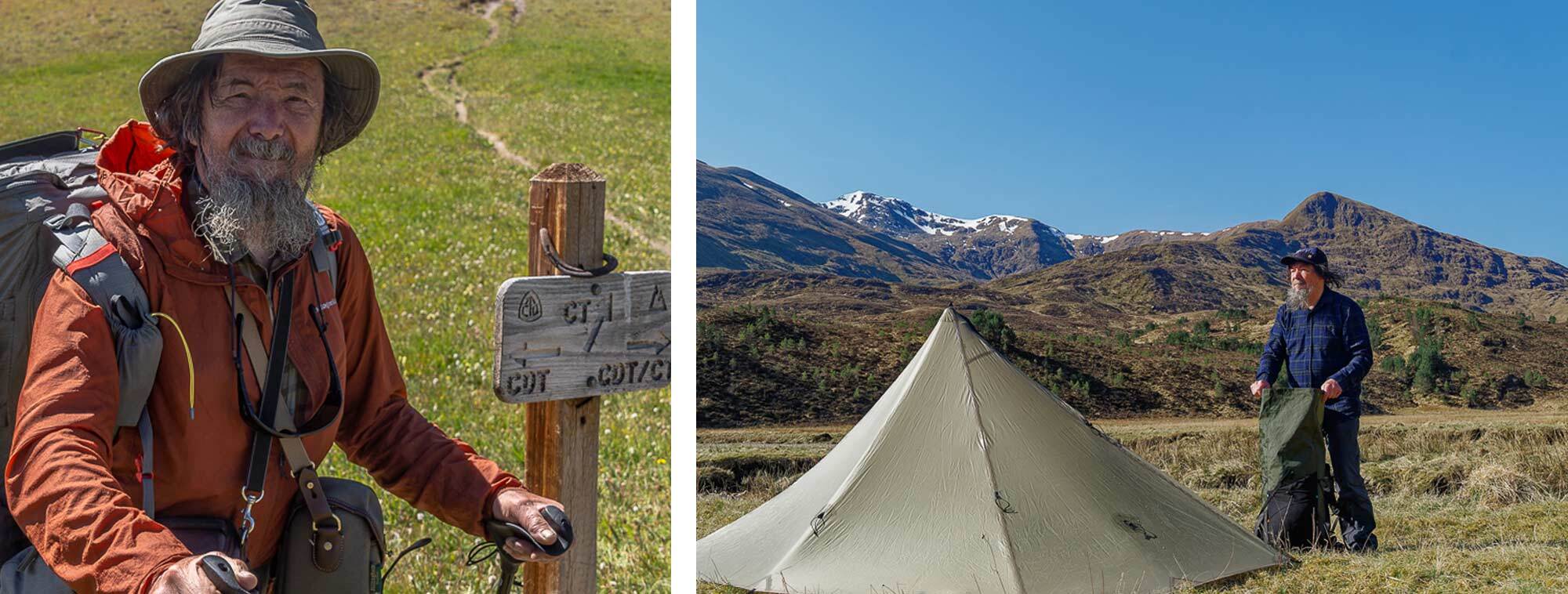
Chris Townsend, the celebrated long-distance hiker and author, has spent decades exploring some of the most challenging and breathtaking trails across the globe. From his early inspirations drawn from Arthur Ransome's tales, which laid the groundwork for his numerous epic adventures, including the Pacific Crest Trail (PCT) and the Continental Divide Trail (CDT), to his groundbreaking trek through the Canadian Rockies. Chris's journey is a testament to his enduring passion for the wilderness.
Chris has become a cornerstone of the hiking and camping community through his writings, such as “The Backpacker's Handbook,” and gear reviews for The Great Outdoors magazine. We are grateful he took the time to share insights from his remarkable experiences, offering invaluable advice and inspiration for hikers of all levels.
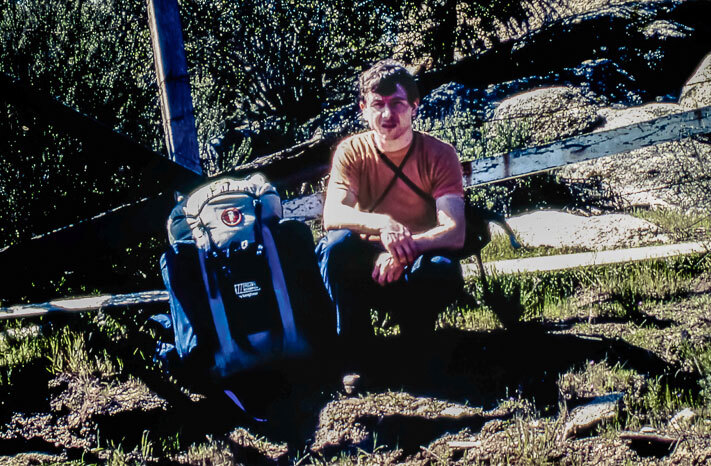
At start of the PCT.
1. What inspired you to start long-distance hiking, and how did you prepare for your first major hike on the Pacific Crest Trail?
I started exploring the countryside as a young child – I can’t remember ever not doing it – so it all stems from that. Inspiration came from books – as a child Arthur Ransome in particular (though not for sailing, I’m not a water person) and stories of mountaineers and adventurers. I started camping and hillwalking but didn’t think of long-distance walking until I came across John Hillaby’s Journey Through Britain, about a Land’s End to John O’Groats walk. I read it and thought I could do that and, more importantly, I want to do that. A few years later I did and LEJOG became my first really long-distance walk (I’d already hiked the Pennine Way). On that walk, I discovered the Scottish Highlands and set out to climb all the Munros in a series of long-distance walks, two of them 500 miles and two were the first two TGO Challenges (then called the Ultimate Challenge). These gave me the experience to feel I could do the PCT, which was inspired by another book, Colin Fletcher’s The Thousand-Mile Summer about a walk the length of California.
2. You've completed several of the world's most challenging trails, such as the PCT, CDT, and AT. Which one was the most difficult, and why?
I’ve never done the AT! And whilst the PCT and CDT are challenging and have tough sections they aren’t the most difficult long walks I’ve done. For different reasons those are my walk the length of the Canadian Rockies (the first time this had been done), my walk south-north through the Yukon Territory, my continuous round of the Munros and Tops (another first), and the Scottish Watershed. One thing these walks have in common is long sections where there are no trails, route-finding is difficult, and the terrain rough and rugged.
3. How has the gear and technology for backpacking evolved since you first started hiking, and what advancements do you think have made the biggest impact?
Materials have made gear much lighter, an obvious bonus. The biggest impact though comes from electronics. Smartphones, GPS, satellite communicators, and the internet have changed long-distance hiking enormously. Back in the 1980s and early 90s, they didn’t exist. Navigation was solely by map and compass. Information was scarce and hard to come by (non-existent for the second half of my Canadian Rockies walk). Communication was by postcard and phone calls from towns along the way. Once away from them, it wasn’t possible so you really did disappear, sometimes for several weeks at a time.
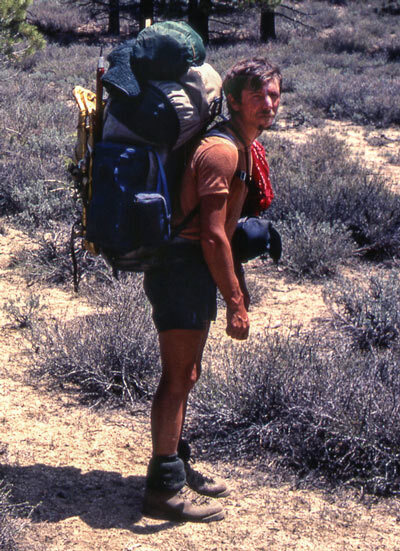
With 21 days food + snow and ice gear at the start of the High Sierra section of the PCT4.

Writer at work.
4. In your book, “The Backpacker's Handbook,” you cover a wide range of topics. What do you think are the most crucial skills for a beginner backpacker to learn?
Navigation plus basic camping and hillwalking. Then practice, practice, practice!
5. You've hiked extensively in both the US and the UK. How do the hiking experiences differ between these two regions?
Immediately it’s the scale. The US and Canada are vast and the UK is tiny. Then there are rules and regulations. Permits are needed in some national parks and wilderness areas in North America. Camping and walking on private land aren’t allowed unless granted by the landowner but the amount of federal and state owned land is huge. It’s not the same everywhere so you do need to find out what applies to where you are going. That applies in the UK too of course with big differences between Scotland and England/Wales with regard to access and wild camping.
6. Can you share a memorable experience or encounter from one of your hikes that had a profound impact on you?
There are so many! Perhaps the most significant was hiking through the vast natural forests on the Pacific Crest Trail. I’d never experienced anything like this before. When I returned to the UK hills I realised just how treeless they were and how far from how they could and should be. I knew this intellectually before, from reading natural history books, but I hadn’t felt it.
7. As an advocate for wilderness preservation, what are some of the biggest challenges facing natural landscapes today, and how can hikers contribute to conservation efforts?
Convincing politicians and decision-makers that the biodiversity and climate crises are real and urgent is crucial. Hikers can help by supporting conservation organisations like the John Muir Trust and Trees for Life and our own recreation bodies like Mountaineering Scotland, Ramblers, and the BMC, which all do valuable conservation work. Beyond that sharing conservation stuff on social media, writing to politicians and businesses, and signing petitions all add up. Every little helps!
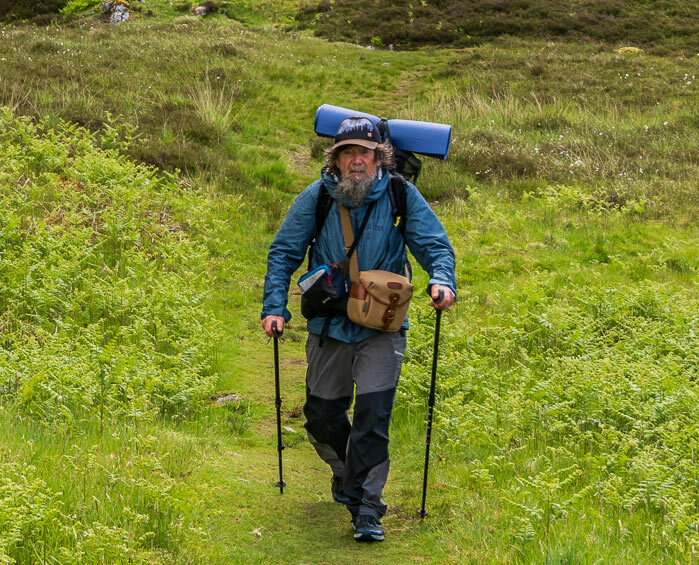
On the Cape Wrath Trail, May 2024.
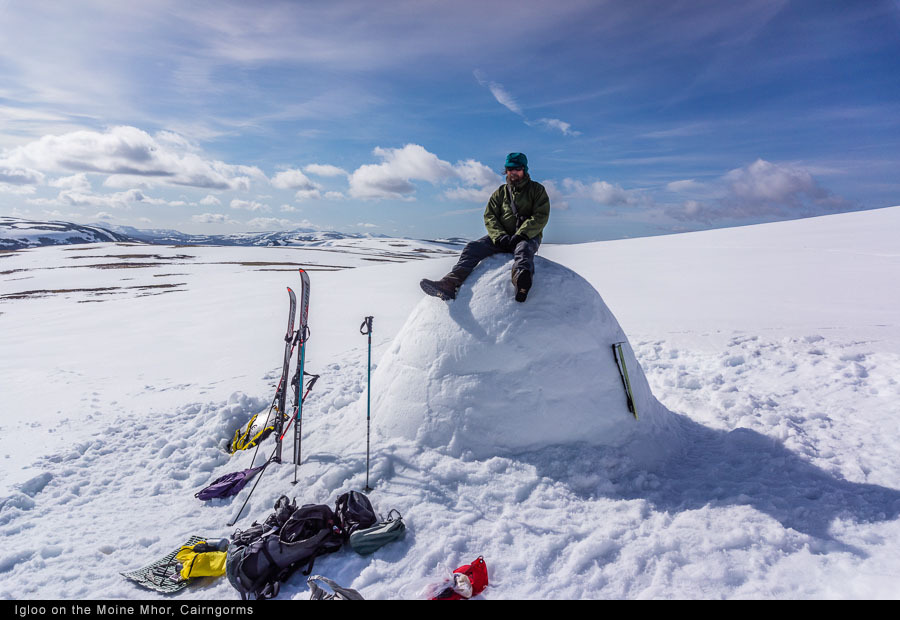
Igloo on the Moine Mhor, Cairngorms.
8. What advice would you give someone planning their first long-distance hike? Are there any common mistakes they should avoid?
Go for it! We all make mistakes – I still do. A common one is carrying too much. Be ruthless about cutting weight – without going so light your gear is inadequate. Footwear is critical. Whether you choose trail shoes or boots make sure they fit properly and if you start having problems change them. Nothing will end a long walk faster than painful feet. Also, don’t set off trying to do high mileage every day. Start slow. You will get fitter.
9. You've written extensively about your hikes and gear. How do you approach writing and documenting your experiences? Do you have a specific process you follow?
I’ve always kept a journal during walks, since before I ever thought of publication, and I write my accounts from these journals. Writing a how-to book like The Backpacker’s Handbook meant thinking about how to organise material so it made sense (at least to me!). With magazine gear reviews and articles, it’s always a matter of collaboration and I fit my writing to the editor’s requirements.
10. What are your future plans in terms of hiking and writing? Are there any new trails or projects you are particularly excited about?
I’m currently working on a new edition of High Summer, the story of my 1988 Canadian Rockies walk, which has long been out of print. The new edition will have many more photos than the original and a new introduction. It’ll be available in print and as an e-book and will be out later in the year, published by Enchanted Rock Press. Then I will be working on another project with the publisher, Andrew Terrill (whose long-distance walking books The Earth Beneath My Feet and On Sacred Ground are wonderful and highly recommended). I’m excited about all of this!
For long-distance walks, I’m thinking about the Pyrenean Haute Route and possibly something in Lapland, but I have no definite plans at present.
11. What is your base weight?
It varies according to when and where I’m going but roughly 10-12kg. Forty years ago it was more like 16-18kg!


|
||
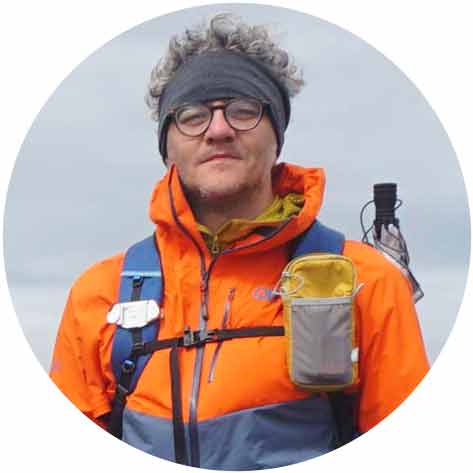 |
||
|
Andy Neil |
||
|
Andy has been a keen long-distance hiker and wild camping enthusiast since he completed the Cleveland Way in 2015. Since then, he has walked thousands of trail miles all over the UK and is an active member of the Wild Camping UK community, being an admin of the largest wild camping community on Facebook. He strongly advocates for responsible wild camping and believes it is important to leave no trace when camping in the wilderness. He joined the UOG team in 2021 and works as a website developer and content creator. |
||
Chris Townsend, the celebrated long-distance hiker and author, has spent decades exploring some of the most challenging and breathtaking trails across the globe. From his early inspirations drawn from Arthur Ransome's tales, which laid the groundwork for his numerous epic adventures, including the Pacific Crest Trail (PCT) and the Continental Divide Trail (CDT) to his groundbreaking trek through the Canadian Rockies, Chris's journey is a testament to his enduring passion for the wilderness.
